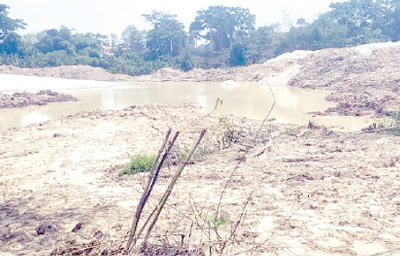CONTINUED FROM LAST WEEK
In the third place, I do not have the slightest doubt that, with rigorous detailed, and scientific planning, which is the cornerstone of socialism and of the materialization of all the objectives contained in this book, we can achieve self-reliance in capital goods and in technology, in twenty years’ time. To plan for less than this target is to proclaim our own intellectual and moral ineptitude and bankruptcy, and to sentence our great country to permanent or long-term economic subjugation. We have worthy examples by which our feet can be guided, in the pursuit of this target. Japan and the USSR achieved complete economic freedom and voluntary economic interdependence in all things inside that period. ‘What they achieved, we too can achieve; more so, as we have their experiences to learn from, in order to avoid their mistakes. It is imperative, therefore, that we should have a twenty-year perspective plan, divided into four operative plans of five years each for progressive fulfilment. To this end, we must, in the meantime, see to it that practically all the capital goods and know-how that are imported into the country are paid for by our exports, as already advocated in Chapters 12 and 13 of The People’s Republic, and in the preceding Section.
8.-10. Rail, Road, and Water Transport

With an area of 356,669 square miles, Nigeria is the size of France, Belgium, and the United Kingdom put together. But unlike each of these countries, it has in relation to its territorial extent, an extremely short coastline. The distance from Maiduguri to Lagos, which is the nearest port, is 1,103 miles. Nigeria’s ports also serve the Republic of Niger, one of our landlocked neighbours. More than 10,000 square miles of Nigeria’s coastal areas are water-and creek-logged.
We are aware of the evil effects of the lack of an efficient and sufficient transport system in most parts of the country. It compels enormous waste of resources, and puts us in the ridiculous position where we have to import in tinned or preserved forms, products which we produce in abundance locally, and which we could have obtained fresh and much more cheaply. It works hardship, and imposes abject poverty, on primary producers who live far away from the coast, and in the creeks, and who, even when they are not far from the coast, are served very poorly, or not at all, by roads. The need for improving and modernizing the Nigerian transport system, its railways, waterways, and roads, is, therefore, incontestable. Such improvement and modernization will much more efficiently serve our interests and those of the Republic of Niger and even of Chad. The mobility of resources which would result will help to accelerate our economic growth, with consequent phenomenal rise in the standard of living of all of us, especially of those living in the rural, creek, and remote areas.
Two points should be disposed of at this stage. Firstly, it has been said by critics of ‘Thoughts on Nigerian Constitution,’ where the objectives were first enunciated on p. 112, that a target of I mile of road to 2 square miles of territory is too ambitious, and unattainable.
The truth is that in the old Eastern Region, where there are 18,000 miles of road to 29,500 square miles of territory, this target is already more than achieved. And in the old Western and Mid-western Regions, the ratio is already I mile of road to 3 square miles of territory. In the particular case of the Midwestern State, if we took out the riverine areas, the ratio is increased to about I to 2. On the other hand, the ratio in the old Northern Region is 1 to 13. Here then is the rub. But the reasons for this low ratio are sparseness of population, and comparative deficiency in economic activities. Both must be corrected-the one as far as possible, compatible with optimal economic efficiency and sociological considerations; and the other as a matter of absolute necessity. With these corrections, and with the increase in productivity, throughout the country, which our objectives envisage, it should be possible to increase the length of our road construction from an average of 2,000 miles per annum (during the 10 years from 1956 to 1966) to an average of 7,550 miles per annum over the next 15 years.

Secondly, the opinion has been seriously expressed in certain quarters that from now on the emphasis in Nigeria should be on road construction rather than on railways. It is said in support that this is the present trend in developed countries and that this trend has been necessitated by the unprofitability of the railways generally, in the face of fierce and superior competition from road transport. I must confess that I cannot speak with authority on the alleged trend. I do know, however, that in Britain the railways are not profitable, and that in general, both theoretically and practically, the railways are no match for road transport, from the point of view of competition.
But where certain types of traffic are concerned, where long distances are involved as in Nigeria, where speed is of the essence of movement of goods from such distances, and when account is taken of the long-term costs of construction and maintenance, road transport is no match at all for the railways. Water transport will be a match only where speed is not of the essence, and cheapness in cost is expected to offset the inevitable loss in time.
It is also true that, with an average speed of 20 miles an hour, our railways are incredibly slow and clumsy. But I have been authoritatively informed that, by relaying our rails and realigning our tracks, we can achieve an average speed of 50 miles an hour. The cost of such relaying and realignment will be £34,000 per mile; and I strongly advocate that we undertake this exercise in our next development plan, on the line between Lagos and Kano. This undertaking will cost us about £30 million. But its immediate effect, on completion, would, in general, be a tremendous boosting of our economy and, in particular, a big rise in the standard of living of Nigerians who live north of the Niger.
It is necessary to point out that, in order to attain a speed of say 80 or more miles per hour on our railways, we would have to scrap the sure that just enough, and no more than just enough, was paid to these Nigerian workers, to enable them to maintain a measure of physical and mental fitness required of people whose role was to obey orders, push the pen, interpret the English language into the vernacular, draw water, hew stone, and, withal, look upon the white man as a god!
CONTINUES NEXT WEEK
ALSO READ FROM NIGERIAN TRIBUNE







